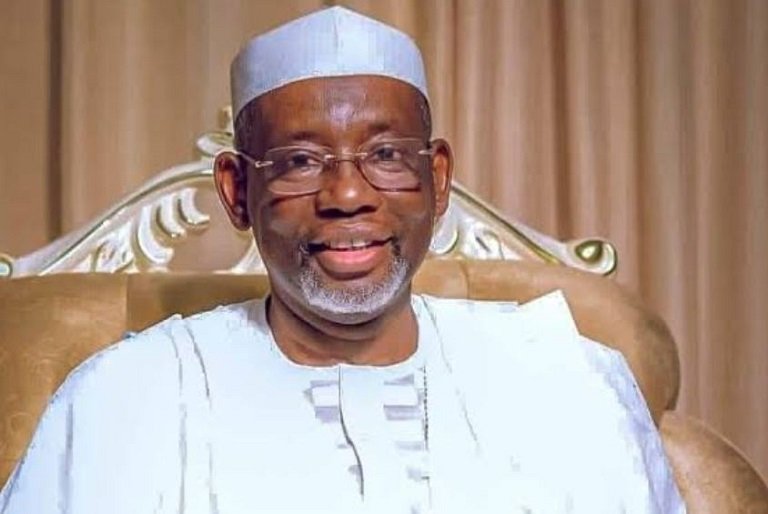No doubt, 2024, has been a daunting year for many Nigerians. An average Nigerian will not forget the kind of hardship it was subjected to in the year, especially as memories of the stampedes that resulted in the death of innocent Nigerians at the Islamic High School, Ibadan, the one in Okija, Anambra State and another in the Federal Capital Territory (FCT), Abuja, when they were trying to scramble for rice and other food items. How about the hike in fuel pump prices, rising cost of transportation, house rent, high cost of food items, and insecurity, among others?
However, as Nigerians embrace 2025, there’s a mix of expectations from Nigerians. While some would want the Federal Government to intensify efforts to tackle growing insecurity in the country, others call for actions to address economic difficulties ravaging the country. Yet, others think the government is yet to make any positive impression in the past 19 months.
Speaking differently, they sent words to their politicians, telling them that the incoming year shouldn’t be business as usual. They called on politicians not to waste 2025 as they did to 2023 and 2024.
While expressing hope and expectation for changes from the attitude of Nigeria politicians who have ruined and destroyed the goodwill of this country as a result of corruption, lack of focus and rudderless leadership, they said politicians should shun the hankering for 2027, and warned 2025 should be dedicated to governance.
Aside from that, they also enjoined the Federal Government and other critical stakeholders at all levels to reduce the suffering of the masses and implement policies that have positive impact on the citizenry.
The Executive Secretary, Produce Export Development Alliance (formerly AFGEAN) and CEO, Post-Harvest Africa, Adetiloye Aiyeola, advised the Federal Government to implement strong policy frameworks that prioritise agriculture as a driver of economic growth.
He noted that the initiative should be done with a mentality of not just spending more, but spending smartly, adding that Nigeria needs targeted investments in agri-tech, climate-smart processes, and access to affordable financing for agribusinesses.
He said: “In 2025, my expectation for Nigeria’s agricultural sector is clear: to see a shift from seeing agriculture as just farming to recognising it as a complete value chain. I expect to see heavy investment in post-harvest infrastructure like storage, processing, and logistics to reduce the staggering 30 to 50 percent of food lost after harvest.
“If we want to feed our growing population and create jobs, we must focus on value addition via heavy agro-industrialisation, empowering businesses to not just produce but process and export.
“I also expect stronger policy frameworks that prioritise agriculture as a driver of economic growth, with a mentality of not just spending more but spending smartly. Nigeria needs targeted investments in agri-tech, climate-smart processes, and access to affordable financing for agribusinesses.”
Aiyeola pleaded with government to make it a matter of national urgency, to transition from being a food-importing nation to becoming a regional and global leader in agro-industrialisation.
The Deputy Babaloja of Sanwo-Olu International Market, Ikosi Ketu, Jamiu Abdulsalam Atiku, also called on government to address key issues affecting their livelihoods.
Reflecting on the challenges of the past year, Atiku noted that the removal of the fuel subsidy in 2023 had adverse effect on their business. According to him, “it affected the prices of goods and transportation costs, which made it difficult for us to make profits.”
Atiku, who has been in the market for 40 years, described 2024 as one of the toughest years ever experienced. He, however, expressed hope for better sales, a stable economy, and government policies that would support business growth in 2025.
“We hope the economy will improve so our businesses can grow, and we can make profits,” he said. Atiku explained that rising cost of transportation was a major concern for traders in the market. According to him, the cost of moving goods from Benue State to Lagos, for instance, rose to N1.2 million in 2024. He urged the government to focus on creating policies that would stabilise the economy and make life easier for the people.
The Chief Imam of UNILAG Muslim community, Prof. Ismail Musa, urged the Federal Government to focus on people-centred programmes and activities at local and global levels, adding that significant efforts must be made to reduce human suffering, loss of lives and livelihoods.
“There should be concerted efforts by the leaders and the led, by people in the public and private sectors and by all men and women of good conscience to focus on preservation of life and human dignity in 2025 and the subsequent years. This is God’s agenda and it should be our agenda.”
Urging Nigerians to thank God for preserving their lives while going through intense pressures of economic depression, natural disasters and wars in 2024, Musa said it was better to hope positively.
“In anticipating a turbulence-free 2025, our recourse should first be to God who is permanently in charge. We should look up to Him for guidance, wisdom and the best way out,” Musa stated.
Similarly, the Catholic Bishop of Oyo, Most Reverend Emmanuel Badejo called on the political class to repent and become more coordinated and serious with their responsibilities for the nation, be it in governance, conduct and accountability.
He said that things would be better in 2025, if only Nigerians themselves become less hypocritical and resolve to play their roles diligently as civil servants, business men/women, petty traders, scholars and self-employed citizens.
Badejo said: “My expectation is that our leaders should repent and become more coordinated and more serious with their responsibilities for the nation, be it in governance, conduct and accountability.
“My expectation is that Nigerians themselves should become less hypocritical and be committed to play their own part diligently as civil servants, business people, petty traders, scholars or self employed citizens.”
The man of God concluded by admonishing Nigerians never to loss hope, adding that, it is the oxygen of life. In the same vein, the Archbishop of Abuja Province of The African Church, Most Reverend (Dr.) Peter Ogunmuyiwa, while recounting that 2024 was a year of mixed feelings for many Nigerians, said citizens still need to thank God for most of the achievements they recorded in 2024.
Ogunmuyiwa said: “Generally, 2024 was a very tough year, and challenging because food items and other essential commodities such as transportation, electricity and other basic needs became out of reach for ordinary citizens. “The removal of fuel subsidy and devaluation of the Naira policy contributed immensely to dehumanise of our people.” He appealed to President Bola Tinubu not to renege in his promise to Nigerians that things would be better in the coming year.
“Our President has assured all Nigerians of a better year of prosperity,” Ogunmuyiwa said, even as he believes that God is capable of turning Nigeria’s fortune around for good in the New Year. My expectation in 2025 is that our economy should improve and cost of living should be affordable to all Nigerians. Therefore, I admonish all Nigerians to be more prudent and conservative in their spending and approach to life.”
While calling on government to embark on policies that will have direct impact on citizens, told Nigerians to reduce their extravagant lifestyle.
Ogunmuyiwa said: “Instead of focusing energy on distribution of food items as palliatives, the government should inject such money and resources to subsidise imported goods, medical items and make our roads motorable.
“I believe that President Tinubu meant well for Nigerians but he needs to collaborate with other sub-nationals to alleviate the sufferings we are currently experiencing and I sincerely hope for a more productive year in 2025 by the grace of God.” An educationist, Sheikh Al-Mansur Williams, said in the New Year, he expects changes from the people as it is critical to having a better nation.
“We the people need to change in 2025 if we want a changed government. This is because we are the government and we are responsible for putting the right or wrong people in leadership positions. The citizens must begin to act well and obey the rules and regulations. Many citizens are lawless and they want a better nation.
“Also, government will execute projects that are allegedly inflated, when it is completed, some people will vandalise it giving room for another inflated contract to renovate or re-execute the project.
“Similarly, there are two transformers in an area with the loads shared, but some residents will find away to get connected to the two transformers so that when one section does not have electricity supply, they can get connected to the second transformer, which often lead to power cut because of the load on the transformer. This is not government but people failing and there are several cases like this.
“So, governance is a two way thing, if we are living up to expectations, then those who are leadership positions will fall in line. Those in leadership positions are only taking advantage of the failings of the citizens in performing their roles. Therefore, we should truly love our country by doing what is right and giving our all to the country, whether as leaders or citizens. If we continue blaming government nothing will happen, rather we should demand accountability from them.”
He, however, said that the people expect those in government provide basic infrastructure as well right leadership. Williams added that efforts should be geared in the New Year to make Nigeria a producing nation and not just importer of goods and services.
After going through a harrowing experience in the hands of young men who kidnapped and kept him in custody for one week until ransom was paid, Ejike Nwoha stated that he would support any move by government of the country to provide security for safety of lives and property.
Nwoha, an engineer, lamented how he was abducted from a construction site by armed men and kept on daily tortures, stressing, “even with the rising cost of living, Nigerians can overcome with more efforts where there is security for them”. He added, “Without security, it becomes a difficult thing as they would now battle between insecurity and economic difficulties.”
Stressing on the essence of security in the southeast region next year, Nwoha said that there is need for people to return to the farms as a way of reducing pressures on government for the betterment of the country.
“For me, let security be the priority next year. This is my earnest desire that we return security to the country so that people can sleep with their eyes closed and go about their duties without fear or molestation. All these talks about building infrastructure when people are hungry as a result of insecurity should stop. Let the federal government should focus on security. That is my own,” he stated.
For Gladys Obioha, a business woman, the government should put in place measures to address excruciating economic difficulties. She said the high cost of living is making nonsense of the claims by President Bola Tinubu that he is in charge of affairs of the country.
“He came into office and announced removal of fuel subsidy. He promised that the gains from the exercise would be used to address challenges of the economy. But it is over 18 months, Nigerians are yet to feel any impact from that exercise rather people are dying and suffering untold hardships. Hunger is killing people and the same government that vowed to make life better has no answer to it. So, I am of the opinion that he should look at the economy with a view to reducing galloping inflation to solve hunger,” she said.
Obioha was not alone; her position was keenly supported by Mrs Blessing Onah, who insisted that the only way President Tinubu could claim to providing effective and desirous leadership is by addressing the plight of the Nigerian masses.
“Have you considered the number of Nigerians who have left this country since last year? Have you considered those willing to leave? The other day, one organisation released a report about the number of Nigerians ready to relocate. Are we not bothered that on daily basis our people have one ugly tale to talk about or the other? It is high time, real attention is made on the economy for the good of the country,” Onah said. Onah explained that the way things are, unless a deliberate action was made to cushion hardship, more people were bound to go into crimes for survival next year.
Also speaking on her expectations next year, Mrs Phenomena Ngene, called for reduction in electricity tariff as well as downward adjustment in the prices of petrol and cooking gas.
She stated that cost of goods and services have remained high because of cost of electricity and petrol, adding that the coming on board of Port Harcourt and Dangote Refineries should be made to serve Nigerians.
“The Federal Government should think of addressing difficulties. Since it is now known that Nigerians are suffering, let them use these Refineries operating in Nigeria to address these difficulties. If Port Harcourt and Dangote Refineries are working, why can’t they bring down the price of petrol and let the people breath from there? Nobody should be happy that people can no longer move easily.
“Electricity cost should be addressed. They should focus on how to get cheaper energy for the common people. The way things are, nobody cares to know whether there are the poor in the land. It is a sad development,” she said.
For Dr. Obinna Ebirim, a public health physician, health promotion specialist, said his expectations is that the country builds on the momentum created these past 15 months with the initiation of policies and programmes such as the Sector-Wide Approach (SWAp) and the Nigeria Health Sector Renewal Initiative Programme (NHSRIP).
The Fellow of Mandela Washington Fellowship for African Leaders said these initiatives have laid the groundwork for a cohesive, results-driven health system that prioritises accountability, integration, and impact. He said in 2025, he hopes to see tangible results from these policies, including improved health outcomes for Nigerians, reduced out-of-pocket expenditures, and significant progress in equity and access to healthcare services.
“For instance, MAMII has the potential to improve maternal and neonatal health outcomes if implemented effectively. Similarly, the Basic Healthcare Provision Fund (BHCPF) can revitalise primary healthcare centres (PHCs), ensuring that over 60 per cent of Nigerians have access to healthcare. The health sector needs can be addressed at the primary health care (PHC) level to have greater access to quality healthcare. This should include more outreach initiatives to ensure immunisation services reach those living far from health facilities,” he said.
To him, achieving these goals requires more than policies; it demands innovative solutions, increased health budgets, and sustained political will. Ebirim noted, “the current health budget is just 5 per cent far below the 15 per cent target set in the Abuja Declaration. This is not encouraging.”
According to him, “one critical area of focus must be health insurance. This year, many Nigerians struggled with catastrophic health expenditures, unable to afford essential medicines and services. In 2025, I expect to see advancements in innovative insurance models that ensure affordability and coverage for the most vulnerable. Expanding the BHCPF and integrating private sector resources into healthcare delivery will be essential steps towards universal health coverage.”
He said, “unlocking the health sector value chain would be crucial for fostering domestic production of health supplies, medicines, and vaccines, creating jobs, and reducing dependency on imports. This requires partnerships with the private sector and an enabling environment to drive innovation and the adoption of technology in healthcare.”
Deputy Director, Nutrition and Dietetics, Obafemi Awolowo University Teaching Hospital Complex (OAUTHC), Ile-Ife, Osun State, Dr Ogbonna Obinna, said he looks forward to government carrying stakeholders in the sector along.
He said though “government of the day is trying to put up measures to see how to retain health care professionals in the country by improving their welfare so that the rate of their relocation may be reduced to this end.” Psychiatric social worker at Federal Neuro Psychiatric Hospital Yaba Lagos, Ajetunmobi Temitayo, called for a conducive environment for health care workers, The Guardian NG reported.











